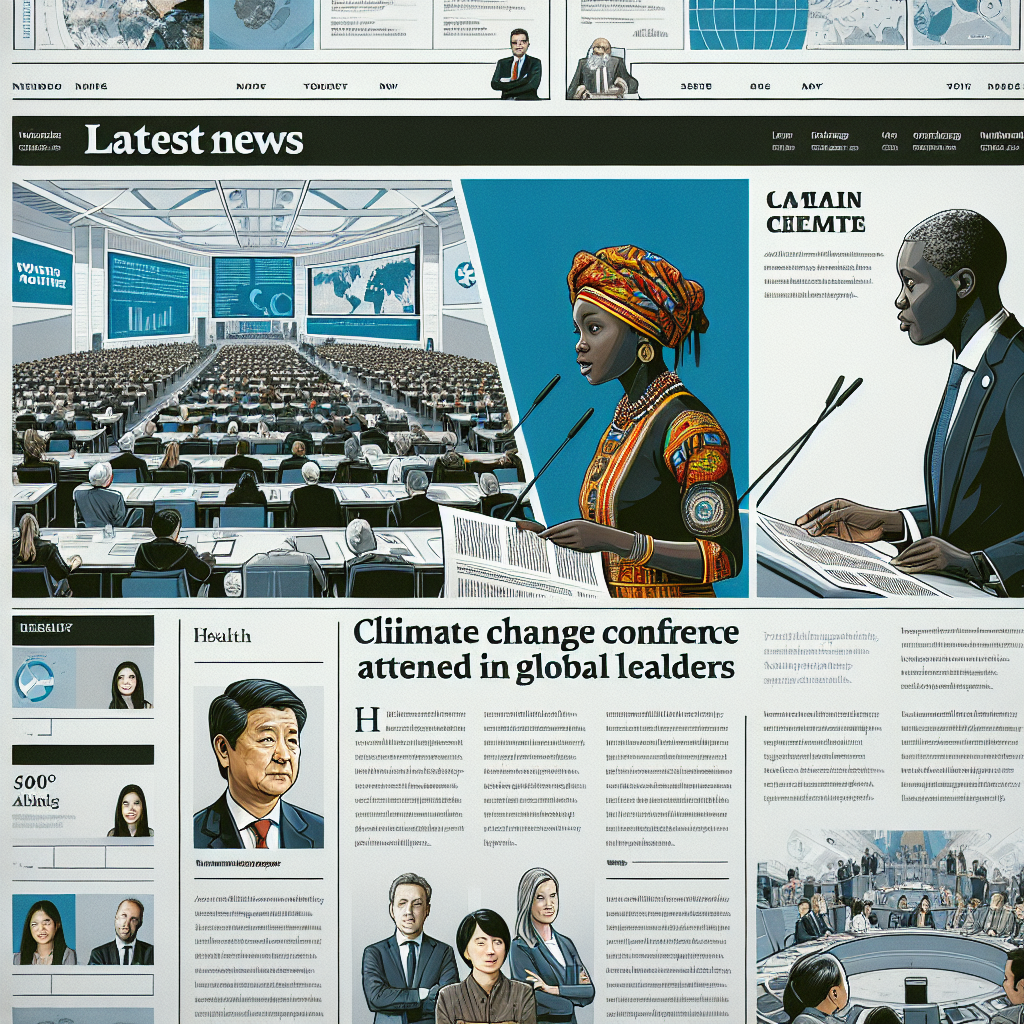Latest News: Navigating the Ever-Changing Landscape of Global Events

In today’s fast-paced world, staying updated with the latest news is more crucial than ever. With the advent of digital media, news is not just about reporting events but also about understanding the implications of these events on a global scale. This article delves into the latest news trends, the impact of digital media, and how individuals and organizations can navigate this ever-changing landscape.
The Evolution of News Consumption
The way we consume news has drastically changed over the past few decades. From traditional newspapers and television broadcasts to digital platforms and social media, the evolution of news consumption has been rapid and transformative.
The Rise of Digital Media
Digital media has revolutionized the way news is delivered and consumed. With the internet, news is now accessible at our fingertips, allowing for real-time updates and a broader reach. According to a report by the Pew Research Center, as of 2021, 86% of Americans get their news from a digital device, highlighting the shift from traditional media to digital platforms.
- Instant access to breaking news
- Interactive content such as videos and infographics
- Personalized news feeds based on user preferences
The Role of Social Media
Social media platforms like Twitter, Facebook, and Instagram have become significant players in the news industry. These platforms not only disseminate news but also allow for public discourse and engagement. A study by Reuters Institute found that 53% of people use social media as a source of news, underscoring its influence in shaping public opinion.
- Real-time updates and live coverage
- User-generated content and citizen journalism
- Viral news stories and trends
Current Trends in Global News
Understanding the latest trends in global news is essential for comprehending the broader implications of current events. From political shifts to technological advancements, these trends shape the world we live in.
Political Developments
Political news remains a dominant force in global media. Recent years have seen significant political shifts, with elections, policy changes, and international relations taking center stage. For instance, the 2020 U.S. presidential election garnered worldwide attention, with its outcome impacting global markets and international policies.
- Impact of political decisions on global economies
- Shifts in international alliances and treaties
- Rise of populism and its global implications
Technological Advancements
Technology continues to be a driving force in shaping the news landscape. Innovations such as artificial intelligence, blockchain, and 5G technology are not only newsworthy but also influence how news is produced and consumed.
- AI in news reporting and content creation
- Blockchain for secure and transparent journalism
- 5G technology enabling faster news delivery
The Impact of Fake News
One of the most significant challenges facing the news industry today is the proliferation of fake news. Misinformation and disinformation can have severe consequences, from influencing elections to inciting violence.
Understanding Fake News
Fake news refers to false or misleading information presented as news. It is often spread through social media and can be difficult to distinguish from legitimate news sources. The rise of deepfakes and AI-generated content has further complicated the issue.
- Identifying credible sources
- Fact-checking and verification processes
- Role of technology in combating fake news
Case Study: The Impact of Fake News on Elections
The 2016 U.S. presidential election is a prime example of how fake news can influence public opinion and electoral outcomes. A study by Stanford University found that fake news stories favoring Donald Trump were shared more widely than those favoring Hillary Clinton, highlighting the potential impact of misinformation on democratic processes.
Navigating the News Landscape
With the overwhelming amount of information available, it is essential to develop strategies for navigating the news landscape effectively. This involves critical thinking, media literacy, and the ability to discern credible sources from unreliable ones.
Developing Media Literacy
Media literacy is the ability to access, analyze, evaluate, and create media in various forms. It is a crucial skill for understanding the complex media environment and making informed decisions.
- Understanding media bias and perspective
- Evaluating the credibility of sources
- Recognizing the influence of algorithms on news feeds
Strategies for Staying Informed
To stay informed in today’s fast-paced news environment, individuals can adopt several strategies:
- Subscribe to reputable news outlets
- Use news aggregators for a balanced perspective
- Engage with diverse viewpoints and opinions
Conclusion
The landscape of news is constantly evolving, driven by technological advancements and changing consumer behaviors. As digital media continues to dominate, understanding the latest trends and challenges in news consumption is essential for staying informed and making sense of the world around us. By developing media literacy skills and adopting effective strategies for navigating the news landscape, individuals can better discern credible information and engage with global events meaningfully. In an era where information is abundant yet often unreliable, the ability to critically evaluate news is more important than ever.



0 Comments